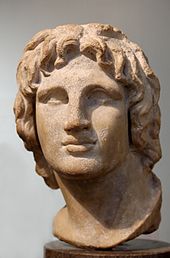Paprika
Jackass of the Week
3. Alexander the Great (336-323 BC), Philip II's son, took the Macedonian armies even further and conquered the Persian Empire, making Macedonia the largest and most powerful nation in the world for centuries to come. In his army next to the Macedonians, he utilized also troops from the Balkan nations that his father Philip II had conquered - Greeks, Illyrians, and Thracians. The Greeks in the Macedonian army, however, were commanded by Macedonians, their contribution in the conquest was insignificant and miniscule, and modern historiography calls them nothing but Macedonian "hostages" who would ensure a good behavior of their friends and families back in Greece (Peter Green, Urlich Wilcken, Ernst Badian, Eugene Borza, A.B. Bosworth). Aware that the Greeks despised the Macedonians, Alexander left massive Macedonian occupation troops in their country before heading for the conquest of Persia, although he knew that he would need as many as possible Macedonians for the dangerous campaign ahead. He however rid himself of the Greeks in his army the first chance he got, after burning the Persian capital Persepolis, and learning that the last Greek state Sparta was defeated by the Macedonian troops he left to watch rebellious Greece.










